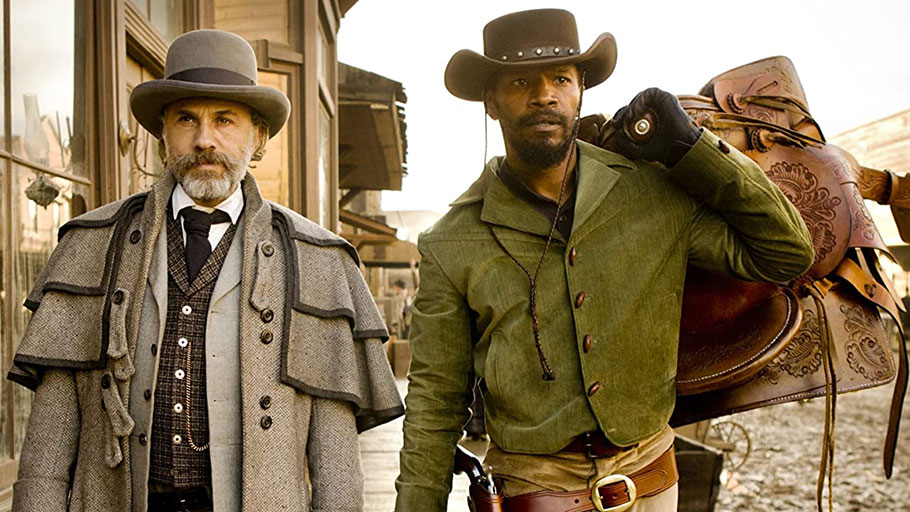By Dr. Kwa David Whitaker —
I saw Django last night and I have intentionally given myself one day to digest the film’s scenes, messages and implications. I consider this an important film for a number of reasons.
These are listed not necessarily in order of priority, as follows:
- The script was strong and the story line reflected many of the social dynamics that made slavery difficult.
- Irrespective of the veracity of each and every event the audience did get a first hand view of the kind of events that have shaped the psyche of African descendants for many generations.
- The fact that this film was set in 1858 means that the enslaved people were in the 8th or 10th generation of this oppressive relationship with White Supremacy and its social apparatus. This would help explain how they appeared so comfortable with what appeared to the viewer to be such horrendous behaviors.
- We saw the relentless effort to dehumanize the enslaved people both in public and in private. We saw this in public streets as well as in private homes.
- We saw the clear difference between Django’s personality and that of his mentor. He had to learn to adapt to the idea of killing people ‘as a business’. He even had trouble doing it in the presence of a man’s son. He worked hard to establish his priority of securing his wife verses being a good guy. Over time he warmed up to what achieving his goal would require.
- We saw clear examples of the ‘domestic terrorism/terrorists’ that African descendants were forced to live with, adjust to and avoid if they were to preserve their health and the health of their children and families. This constant threat of ‘terror’ was responsible for the development of the ‘dual personality’ that was described by James Baldwin, W.E.B. DuBois and others. Given the potential of the ever present, unpredictable and vicious multiple personalities of the ‘Masters’ it should not surprise us today that our people continue to harbor deep-seated fears of ‘whites’. The ‘terror’ that was visited upon our Ancestors during their kidnapping and false imprisonment, their inhumane detention in the infamous slave dungeons, the horrific Middle Passage to the Americas, their subsequent sale and unending servitude has numbed our senses and rendered us almost incapable of making sound evaluations of our current situations or the kind of steps we must take to improve our condition.
- In the final 30 minutes of the film Django’s actions symbolized the catharsis (like the OJ Simpson decision—this also dealt with the killing of whites) that all black people want-he dealt with all of those forces that had worked against his interest, i.e. he killed all of the whites, punished the proverbial ‘house nigger’ that works against our interest everyday in a final statement to wipe the slate clean. Unfortunately, at this same time, we see some very disturbing signs—i.e. first, we are reminded that Django is only 1 of 10,000 blacks that could do what he did (in other words this is not likely to represent a big problem for the status quo. We have seen this with Martin, Malcolm, (Barack?), etc as evidence of the scarcity of our leadership). Second, we are shown the subtle, yet disturbing personality changes that have taken place in the psyche of Django whereby, he replaces his cloths with those of the Master –in other words, looking White, like the Master (taking on the qualities of the Master), is better than looking like himself. How this change will transform him into a new and more dangerous version of those forces that he overcame is not clear. Third, he still lives at a time, when according, to the film’s story line, the general (white) public is shocked to see a black man on a horse. The story ends with Django, dressed like a white man, having adopted the white man’s strategies and personality traits, mastered white skills of lies and deception, appearing very happy, on a horse with his wife, also on a horse, heading off to a very uncertain and precarious future with no friends, no infrastructure, in a hostile climate, unable to do much of anything to help his people.
This whole thing is eerily similar to our present position going into Obama’s second term.















